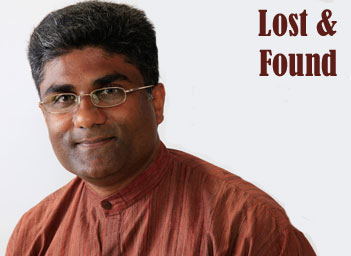 Rom 13: 8 Owe no one anything, except to love one another, for the one who loves his neighbor has fulfilled the law.
Rom 13: 8 Owe no one anything, except to love one another, for the one who loves his neighbor has fulfilled the law.
WHEN the governments convince the public that their economy depends upon everyone spending more, even if it means borrowing money that is not theirs, then foolish policies have taken over the nation. Two of the financially strongest nations, China and Japan, know little of personal credit card debt. Students typically finance their college degree through loans, which (in 2010) averaged $35,000. When two college graduates marry, the couple’s debt is often doubled. In hard times, many survive by increasing credit card debt, which can quickly grow beyond one’s ability to repaid.
Debt can be an evil taskmaster. Proverbs warns, “If you can’t pay it, even your bed will be snatched from under you” (Prov 22:27 NLT). Furthermore, it must be understood that “the borrower is slave to the lender” (Prov 22:7 TNIV). When we recognize the risk of loans, it motivates the need for wisdom.
Some have exaggerated this command to mean that a Christian should never go into any kind of debt, but this is not totally forbidden in the OT or NT. In the OT personal loans were to be made without interest (Ex 22:25), especially to the poor (Lev 25:23-36). However, non-Jewish borrowers could be charged a modest interest (Lev 25:35-36). In fact, a special blessing was promised for the generous lender, “for this thing the Lord your God will bless you in all your work and in all your undertakings” (Deut 15:10).
Jesus taught, “Love your enemies, and do good, and lend, expecting nothing in return; and your reward will be great, and you will be sons of the Most High” (Luke 6:35). If we are told to loan money, then someone is borrowing it.
First, borrowing is an emergency measure to survive an unusual situation. It is a temporary measure to secure necessary commodities to continue a business or income flow.
Secondly, borrowing must be carefully calculated to assure repayment. “Evil men borrow, but do not repay their debt” (Psa 37:21 NET). In difficult economic times when income cannot be assured, debt should be kept to a minimum.
Thirdly, borrowing for unnecessary items, i.e., luxuries that are not affordable, begins to move out of the sphere of wisdom living. Symptoms of encroaching evil is covetousness: “He covets greedily all day long, But the righteous gives and does not spare” (Prov 21:26 ). Does going into debt quench or limit your freedom to be generous? Also, do you borrow to show off or brag about new possessions? Wisdom warns: “the wicked man boasts because he gets what he wants” (Psa10:3 NET).
Fourthly, borrowing can feed the evil of greed: “Greedy people try to get rich quick but don’t realize they’re headed for poverty” (Prov 28:22 NLT).
There is a debt that is healthy: the debt of love. Since God loves us unconditionally, we have a sense of debt to Him to repay His love by loving each other and especially to have “a great sense of obligation to people in both the civilized world and the rest of the world, to the educated and uneducated alike” (Rom 1:14 NLT). Since we have received God’s love as a gift through grace, we owe it to those who have never heard. Is there a financial parallel with this principle? Meditate on it and tell the Lord your answer.
Psalm 119:36 “Give me an eagerness for your laws rather than a love for money!”
Read another devotional by Don Fanning
The writer is a professor at Liberty University, the world’s largest Christian university.
For a year’s daily devotional of these Bible studies, order a copy of the book Truths to Live By at Branches Publications for your copy.



















